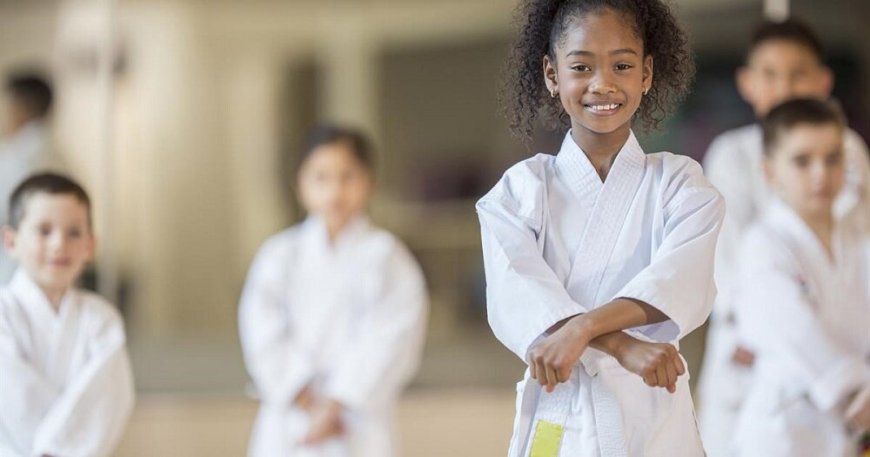Youth - How to Encourage Physical Activity?
Younger athletes have a different ability to concentrate than adults. Adolescents sometimes avoid physical activity, become easily distracted

Adolescents often easily distracted and have difficulty concentrating. These tips will help you train young athletes.
Younger athletes have a different ability to concentrate than adults. Adolescents sometimes avoid physical activity, become easily distracted, and find it difficult to maintain regular training.
In this article, you'll discover how to help young people focus on sports and being active. Read on and find out more!
As parents, teachers and trainers, we have the opportunity to help and enable our children and young people to practice sports. An extremely important point concerns advice to help young people focus on sports and physical activity.
Young people have incomplete and developing cognitive abilities than adults, therefore they require mental and physical training adapted to their level of development.
The prefrontal cortex, the part of the brain that controls higher cognitive functions, fully matures by the age of 25. It plays a role in the functioning of the working memory of the human brain, helps in planning movements and actions, and considering their consequences.
It also influences spontaneous and violent emotional states, the source of which is the hypothalamus and the limbic system. For this reason, it is important to consider the development of methods of concentration and emotional control in young athletes to help them make the most of the sport for the development of the whole body.
Young people are more likely to have fewer attention resources, but that doesn't mean they can't be helped to work on the problem. In fact, this age group is better at adapting to change and its learning ability is much higher. Therefore, in this article, we will share some simple key information to help young people focus on sports.
Youth and sports: eliminate all possible distractions
Like adults, young people often distracted by environmental stimuli around them. However, unlike adults, it is more difficult for them to focus their attention on what is really important.
To avoid distraction, it's best to limit environmental stimulation so that they can only pay attention to a few things. For example, in the case of soccer training, the coach should first explain the strategy and then give the team the opportunity to practice their moves.
Otherwise, if players practice moves and passes while the coach explains the exercise, they are likely to be distracted and not paying attention to the coach's instructions.
In addition, the use of cell phones should be strictly eliminated in any discipline. Notification and application sounds will distract your attention even if your teenager cannot see the screen.
Explain the exercises step by step and do the appropriate demonstrations
The ability of children and adolescents to be alert and follow instructions is more limited than in adults. In the same way, younger athletes learn faster through visual demonstrations and practice than just verbal instruction and listening to lectures and commands.
In this regard, you need to understand that the moment an athlete gets lost in explanations; his attention distracted almost instantly. To prevent this from happening, it's best to break the game down into the most basic sequence of steps and teach young people the steps or practices in a practical way.
In this way, athletes will understand what to do and also be aware of how specific tasks combine into an organized sequence of movements.
Youth in sports: increase your motivation while exercising
Motivation and concentration are closely related. It is very difficult for an unmotivated and unorganized athlete to concentrate - he will only count down the hours until the end of training.
To increase the motivation of younger athletes, It involves doing activities that you like as a positive reinforcement after you have done work, exercise or exertion.
Establish regular routine and healthy habits
Young people are very sensitive to routine and regular exercise habits. They get used to them quickly and they work. They help to avoid wasting time translating and unnecessary distractions.
Routines and rules keep you safe and allow young people to anticipate what should happen. In the case of group sports, dancing or running workouts. It has best for the coaches to plan a warm-up, training and rest time along with stretching, because young people get used to these dynamics.
Of course, there always unpredictable factors and you must prepared to adapt to any changes that may arise. Injuries, weather changes, and the arrival of new people - you have to be ready for all possibilities. Therefore, your procedures need to be flexible to allow new changes to made.
Youth in sport - patience: one of the keys to success
As a coach or educator working with young athletes, you need to be able to put yourself in their shoes and understand them. This will help you accept the fact that while teens may appear like adults. Adolescents' cognitive abilities not yet fully developed.
Therefore, you need to be patient and understand that any changes will not bring immediate results. Instead, they will become noticeable over time and your team will begin to achieve success.
In short, sport helps to improve focus, motor development and concentration in young people. This means that playing sports and being active is a way of learning that has mental and bodily benefits. In addition, it helps young people concentrate and enjoy new achievements.
